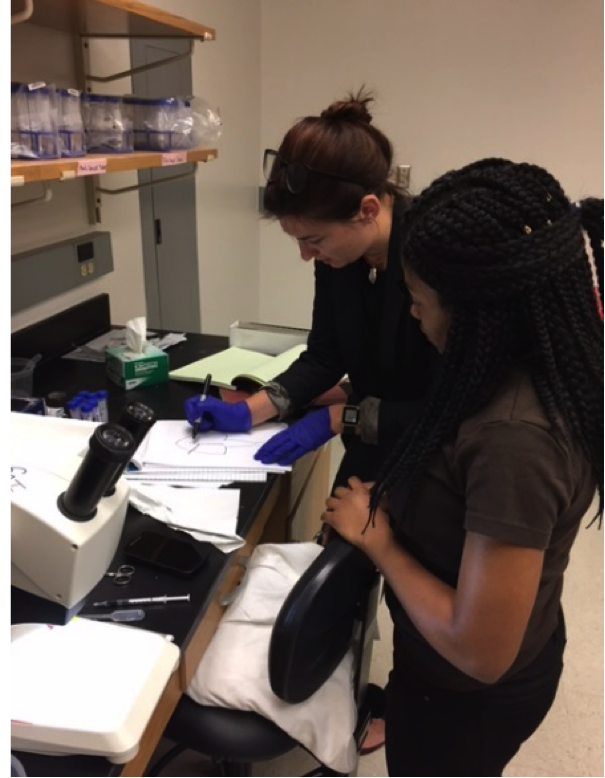One BOLD-Fellows Journey from Cellular Platelet Biologist to Discovery Science Educator
by Kendra Oliver, Ph.D.
Postdoctoral Research Fellow, Department of Nephrology and Hypertension and former CFT BOLD Fellow
Only a few days after my graduation with a Ph.D. in Pharmacology, I had the opportunity to attend the BOLD Fellows annual presentation session. Over the next hour, I heard from Fellows from many different disciplines describe innovating approaches to blended learning. Only a year ago, I presented on the use of blogs in a classroom. Now, as a postdoctoral fellow working both in education and science, I understand the full weight of the BOLD program and its impact on my career; a training that has shaped a critical thinking approach that traverses both education and science.

Living between the worlds of science and education is challenging for multiple reasons. One of the biggest challenges is balancing time and effort between scientific experimentation and creative, innovative approaches to education. The most rewarding process occurs when the two complement each other to create unique innovative outcomes. The conflict and commonality between science research and education research was first brought to my attention as a BOLD fellow. My project examined the hypothesis that student use of a monitored course blog (with points associated with it) would increase student ownership in the course. As I dissected and tested this hypothesis in the classroom, I recognized the same critical thinking skills were essential to my success at the bench. Nearing the end of my doctoral training, I found this revelation astonishing. Suddenly, as if hit by the proverbial lightning bolt, I realized that an investigative approach was universal. In the end, the common processes required to distill and communicate key concepts and hypotheses – regardless of the discipline –is essential for success.
There are many different paths that Ph.Ds. in science can take following graduation, including post-doctoral fellowships, jobs in industry, teaching, and non-traditional opportunities. My time in the Pharmacology Department and as a BOLD fellow gave me the confidence to pursue the unknown “non-traditional” path. Although I matriculated into a postdoctoral position, I would consider it VERY non-traditional. Working with Dr. Billy Hudson and Dr. Julie Hudson, I am exploring the intersection of science and education through Aspirnaut. Over the last 9 months I have been wading through the process of building a curriculum framework that bridges discovery science and K-12 education in a blended learning environment. The major scientific research question being addressed is how collagen IV and the basement membrane forms during development and acts as a primitive filtration barrier. To understand this phenomenon, I am developing new model systems (using brine shrimp and Triops) that can be effectively adapted from the bench to the classroom. The goal of this work is twofold: to expand the scientific knowledge and to publish findings on this unique education paradigm. Additionally, I am using qualitative and quantitative research methods to evaluate the Aspirnaut Program, and recently presented preliminary finding as American Society of Cell Biology. This unique opportunity has allowed me to explore the intersection between by education and scientific innovation.
Navigating the boundaries of science and education is like leading an expedition into the thick unexplored jungle. It is difficult to tell where the final destination is and you rarely see danger until it is on top of you. However, much like a jungle this expedition is exciting and innovative, leading to new discoveries as the boundaries of the normative academic conform zone. The analytical approach learned during my Ph.D. tenure and BOLD Fellowship are not silo-ed. Rather the same questions, concerns, and limitations that I could dissect from an experimental assay applied to my analysis of an education study. The approach is one in the same!
Please contact Kendra for any additional information or to hear more about her story and visit the Center for Matrix Biology and Aspirnaut for more information about the education program

Leave a Response